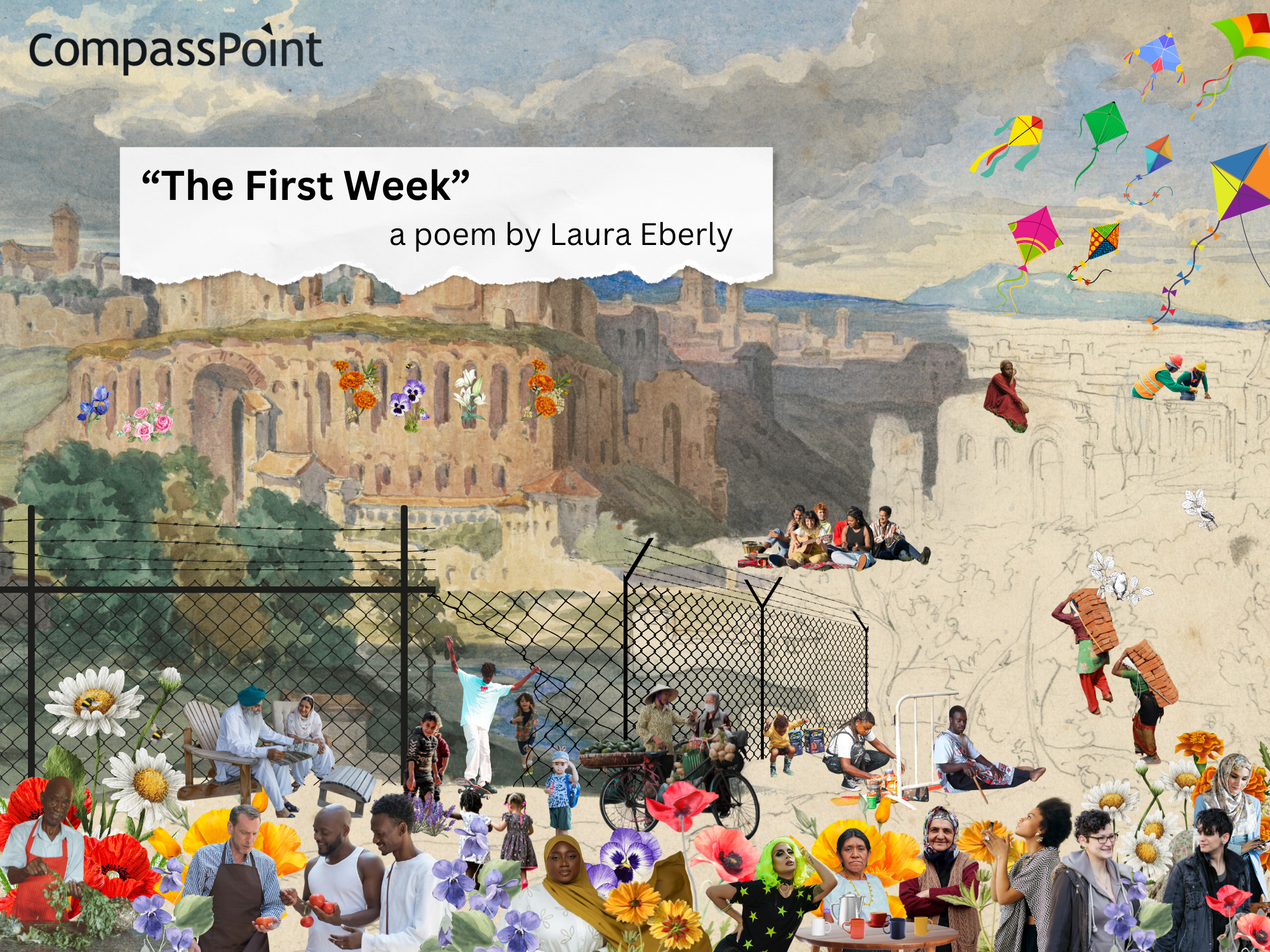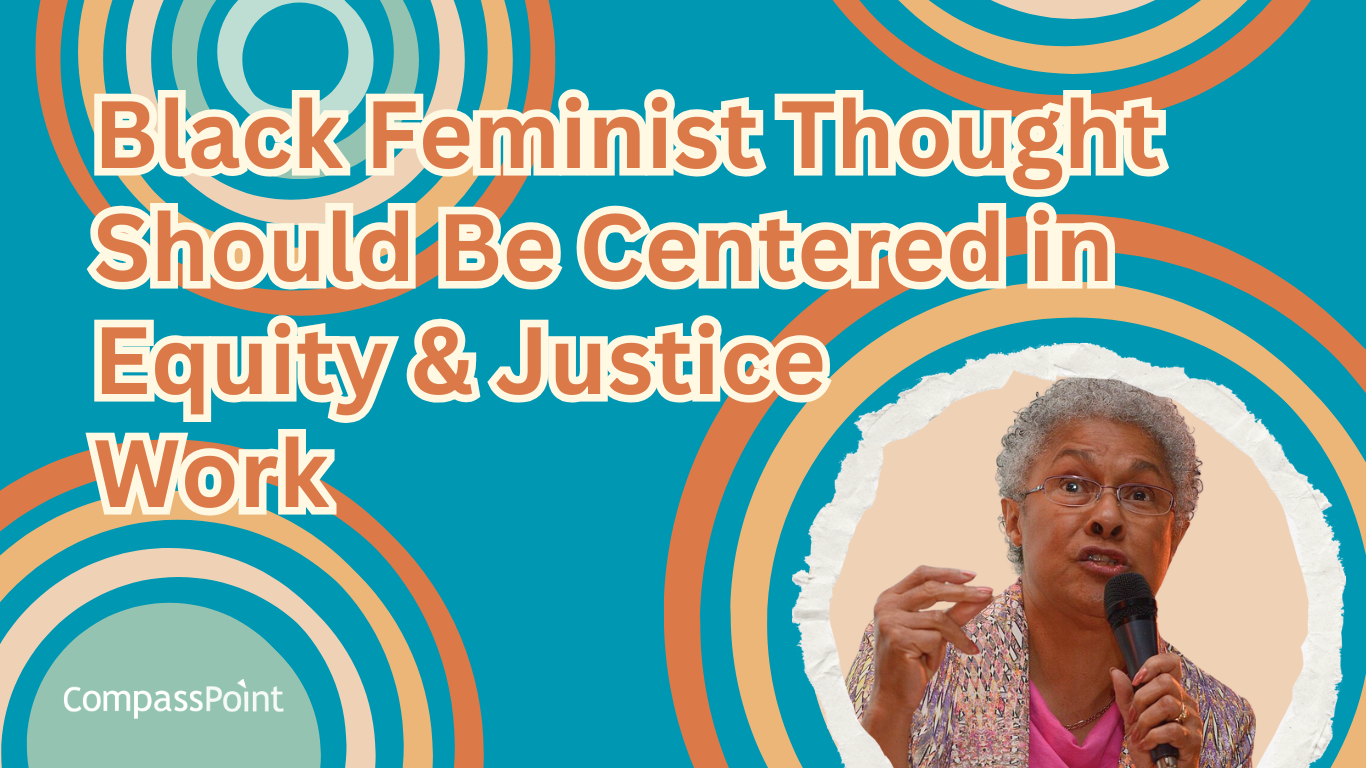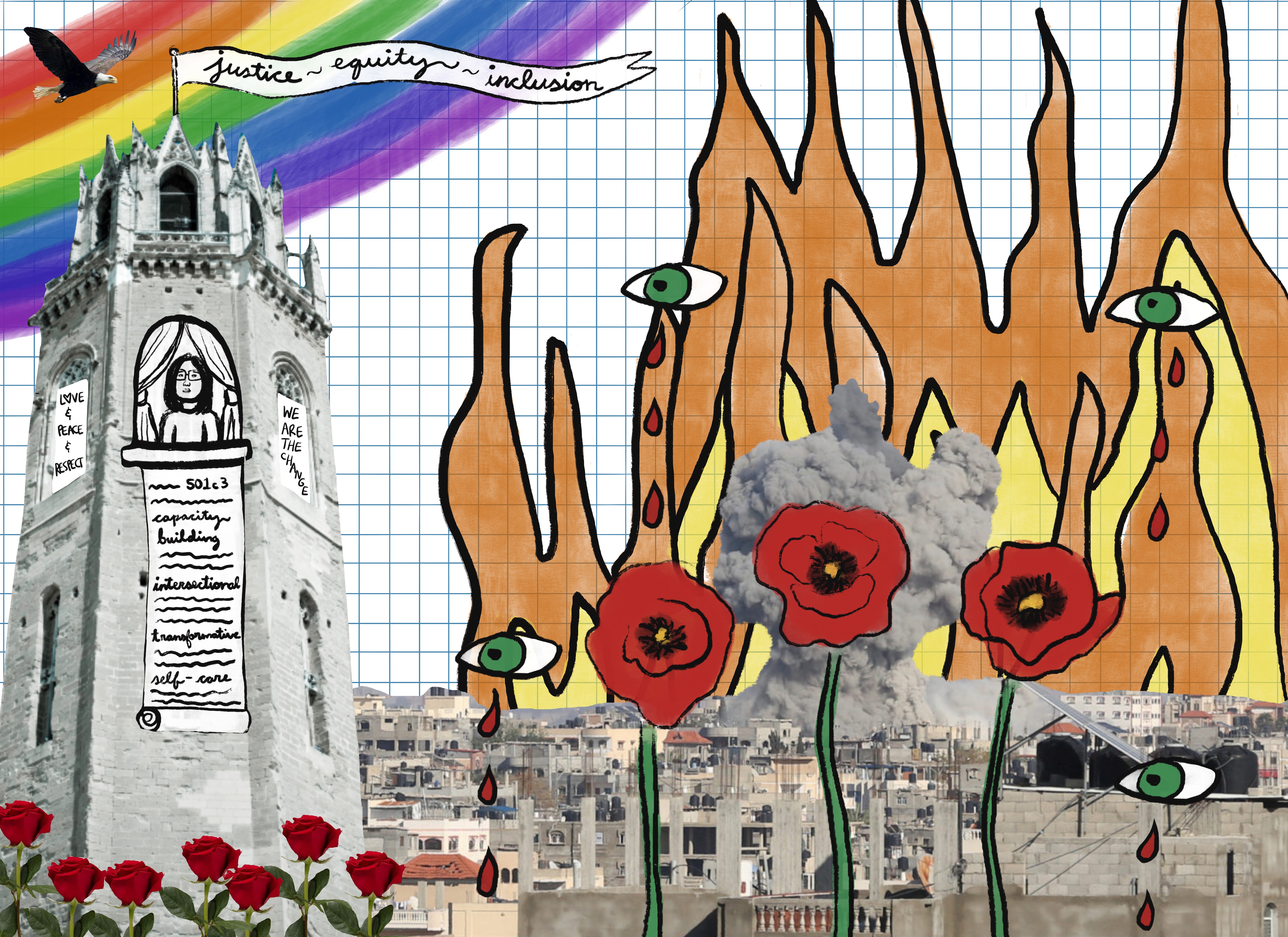How do some structures at nonprofit organizations make it harder for people of color to thrive and survive? In this open letter to other POC leaders, Project Director Lupe Poblano explores how patriarchal, white dominant structures that prioritize hierarchy and productivity fail to support community, connection, and the ability to bring our authentic selves to work.
decolonization
requires
acknowledging.
that your
needs and desires
should
never
come at the expense of another’s
life energy.
it is being honest
that
you have been spoiled
by a machine
that
is not feeding you freedom,
but
feeding
you
the milk of pain.
-nayyirah waheed
Family, have you read this article about work stress impacting us?
The article is sanitized and whitewashed (pun intended) in that it does not pull the curtain back on what exactly causes our trauma and oppression in the workplace. That said, it does have an underlying point that we as leaders of color in the nonprofit sector cannot overlook. On the surface, it shows how race, gender, and education tie into our workplace health. Not surprisingly, the workplace tends to be a really safe space—physically and psychologically—for well-educated, cisgender, white men.
Isn’t it interesting how the structures of white supremacy and patriarchy enable this kind of magic to happen?
Conversely, for those of us who are black or brown, API, a woman, or don’t have education privilege, we are more likely to die because of workplace stress.
The article correctly identifies significant factors for folks of color that impact workplace stress, such as an employee at a fast food chain having lower wages, little job security, and no job control over their schedule.
In addition to that, there is something else insidious happening to us, leaders of color in the nonprofit sector. People of color (POC), and especially women of color (WOC), know that there are other factors of workplace stress that are literally killing us.
I do have education privilege. I got my masters in organizational development and I’ve read literally thousands of pages on how organizations should be designed. Almost every single one of those pages was written by a white male. Indirectly, these pages have provided the theory for the hierarchy, structures, policies, and systems many of our racial and gender justice organizations have adopted. Make no mistake: many POC and WOC are having to navigate systems that were not designed for us. They were designed by white people (mostly men), structured by white people (mostly men), for the advancement of white people (mostly men). It doesn’t take a magnifying glass to read between the lines and find the link between these systems and white supremacy and patriarchy, and the link between white supremacy and the workplace stress that is killing us. That’s some #RealTalk.
The systems of patriarchy and white supremacy have an emphasis on efficiency—on getting things done. Accountabilities and roles don’t accurately capture where invisible social power is actually held. The rules of the game are meant to confuse and divert our attention by creating proxy fights. The language and technicalities of these structures are the masters’ tools: they give people with power more ammunition to enact administrative and bureaucratic violence against us.
We are asked to compartmentalize our identity, to check our trauma, and question our own corazón wisdom. We are intentionally disconnected from our bodies, spirit, and sexuality. Our gifts are not welcomed or valued. We are reduced and dehumanized. And then we are exploited—our heart and ideas extracted from us while those with the most privilege design the organization and the Board. To survive, we have to justify what we feel in our bones with intellectual frameworks and theories that make white people feel safe.
While the Stanford study is helpful, I don’t need them to tell me that the workplace is dangerous for me. As a POC, I know these structures of white supremacy are suffocating me, and will take years off my life. Beyond the statistics of death, POC and WOC hold untold stories of tears, heartache, trauma, pain, and broken dreams.
Let me make something else clear: this is not just a systemic critique of white supremacy and patriarchy in the social justice sector: this is a critique of ourselves, too.
We need to stop having our minds, souls, and spirits colonized by these institutional white male structures. These structures are not only oppressive, they create the conditions for us to internalize oppression and do it to ourselves and each other. If we would not adopt our theories of gender and racial justice from Silicon Valley or Harvard Business School, then why would we adopt their structures? Organizational systems and structures cannot be adopted—they can only be created. We, as folks of color, need to create structures and systems that are expressions of our own identity, values, and purpose. Our leadership is beautiful and purposeful. We can create something that makes our leadership come alive. Let’s start taking care of ourselves. Let’s start taking care of each other.
Since organizational structures cannot be adopted, I am not going to peddle an elaborate solution. What I can offer are ideas. And not ideas of how to make oppressive white supremacy and patriarchy organizational structures more equitable (that is a fool’s errand), but ideas of how we can begin to actually create organizations that take care of us, meet our needs, humanize us, and help us organize for power and make the collective change we seek to make.
- Ritual and Ceremony. We can learn so much wisdom from our ancestors; draw so much strength from their experience; and share so much wealth through their ceremonies. We need to bring our ancestors and their ceremonies back into our organizations. Whether it is Korean drumming, or burning sabio into a copal and turning to the four directions, we lose so much when we pretend our ancestors and their traditions aren’t with us in the office. Our ancestral traditions bring connection and community into our workplaces. They humanize and energize us; they connect us to our past, present, and future selves.
- Imagination and inquiry. Instead of structures that split us up into functional groupings or categorize our work and roles in arbitrary and one-dimensional ways, what if we clustered our organizations around our most urgent and philosophical questions? Grace Lee Boggs was a huge proponent of the dialectical method, and knew that it could be used as a tool of for intellectual liberation and structural transformation. When we focus on inquiry first, we give fuel to our critical consciousness and ability to have an analysis of the systems and structures we use. And in addition to that analysis, we can “also unleash the imagination and creative powers of the people to envision and enact an alternative.”
- Centering physical practice. Patriarchy and white supremacy make me feel so disconnected to my body. Norma Wong’s 60/40 Stance serves as both a physical embodiment but also a philosophy for approaching our work. It is “a technology with both physical and conceptual or intellectual principles that can be applied to at the individual, organizational, and movement levels.” Norma’s 10-Step Tai Ji is rich with metaphors for how we think about change, systems, and learning. In POC designed systems, we need to center physical practice and wisdom of the body into our core structures.
Those are some offerings, and I’d love to hear from my sisters and brothers of color about other ways we can reconstruct our organizations to liberate us. Instead of adopting, assimilating, and surviving, we have an opportunity to create, decolonize, and thrive. We are limiting our ability to change the world around us if we cannot make our organizations work for us—or if our organizations kill us in the process. This is the journey. Let’s get free.
Lupe Poblano, MS, is a Project Director at CompassPoint. Most recently Lupe served as the Director of Evaluation, Learning, and Strategy at Habitat for Humanity Greater San Francisco. You can reach him by email. Follow him on twitter at @LupePoblano.





Submit a comment
(5) Comments
Kebo Drew replied on Permalink
Thanks for this Lupe!
It helped to crystalize the thinking of my organization and how we might help people to understand the importance and power of art for people of color. To wit, our current understanding/dismissal of art as solely "entertainment," and not a part of social justice organizing is an outgrowth of white supremacy and capitalist notions of patronage for art. When in truth, art and culture are the key to the cultural resistance and cultural resilience, cultural reclamation (& decolonization) and cultural renewal.
Your article reminded me that we have to continually talk about this history so that people of color don't lose one of the key connections to our spiritual traditions like ritual & ceremony, methods of imagination and inquiry, and physical practices from singing & chanting to dance and other movement.
La cultura cura, and we have to remember that.
Lupe Poblano replied on Permalink
Kebo Drew I want to get your response tattooed over my heart! It is absolutely a tool of domination and oppression when we get disconnected/alienated from our culture and art, or they get co-opted and then presented back to us a-historically.
Thank you for lifting up how art and culture are actually acts of defiance, along with expressions of our fundamental truth.
-Lupe
Raynelle Rino replied on Permalink
Lupe, I can't thank you enough for posting this! You are a true gift to our community of POC struggling to seek validation and even to name what is felt in these situations. I really appreciate this! I was forwarded this by a colleague who said this post helped her. We are POC's in the environmental field and its not an easy industry to navigate through, certainly!
Our spiritual connections to our ancestors are also critical if we are to move through all of this transition happening in the national conversation on race and white supremacy. We need our "lights to be turned back on"; we can only do that! And that's happening especially watching the #noDAPL!
Lupe Poblano replied on Permalink
Thanks for the contribution to the discussion and your kind words, Raynelle! You are so right about the #noDAPL movement. Not only are they turning our lights on, they are teaching us so much about community-driven solutions and organizing.
-Lupe
Trisha Tchume replied on Permalink
Trying to support a POC organization through a structure change and couldn't quite place why all the "models" I came across didn't feel quite right. The belief that these structures are something to build toward is so deep and ingrained it had become invisible to me. Thank you for naming this, Brother Lupe! Hope you're doing well.